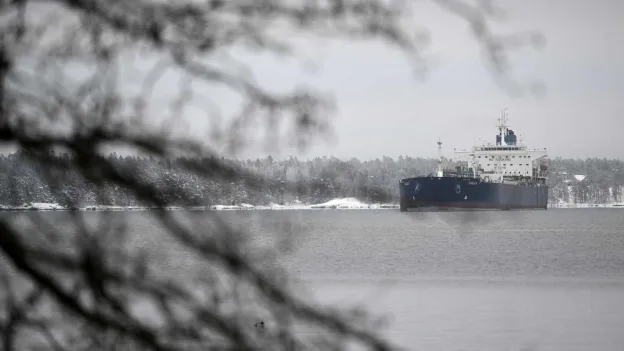
NATO Countries in Baltic Region Strengthen Security Measures Against Future Attacks from Russian Shadow Fleet

stockholm - NATO countries surrounding the Baltic Sea are increasing their presence and security measures in response to recent attacks on undersea cables believed to be carried out by Russian vessels.
NATO will expand its presence in the Baltic Sea with patrol vessels, submarines, aircraft, and drones through the new operation 'Baltic Sentry' following an emergency NATO summit in Helsinki.
The eight NATO countries situated around the Baltic Sea agreed during the summit to enhance security in the region after several data and communication cables on the seabed were destroyed by ships believed to be part of the Russian shadow fleet.
Leaders from Denmark, Sweden, Finland, Estonia, Latvia, Lithuania, Poland, and Germany attended the summit where NATO Secretary-General Mark Rutte expressed concerns over the sabotage of undersea cables and the shadow fleet as a major issue.
In a joint statement, the Baltic countries described the shadow fleet as 'a particular threat to maritime and ecological security in the Baltic Sea region and globally', pledging to take robust actions in response to future attacks.
Measures include prosecuting those responsible, seeking compensation, increasing monitoring and inspections of suspicious ships, and imposing additional sanctions on the Russian shadow fleet. NATO will also modernize the network of electricity and data cables while Denmark calls for a review of the over 150-year-old Öresund Treaty facilitating passage through the Baltic Sea.
Finland's swift response to a recent cable break on Boxing Day was highlighted during the summit as a model for the future. A special Finnish police force boarded the suspected ship Eagles S after data and power cables were destroyed, setting an example for decisive action.
The Eagle S, believed to be part of the Russian shadow fleet, was seized by Finnish police, and its eight crew members were arrested. A recent request for the release of the ship and crew was denied by the Helsinki court, keeping the Eagle S anchored outside the city.
In November, two communication cables in the Baltic Sea were damaged, with the Chinese ship Yi Peng 3 identified as a suspect. The missing anchor from the ship was recovered by the Swedish navy on Tuesday, though Swedish Minister Carl-Oskar Bohlin refrained from speculating on the ship's intentions.


Leave a comment